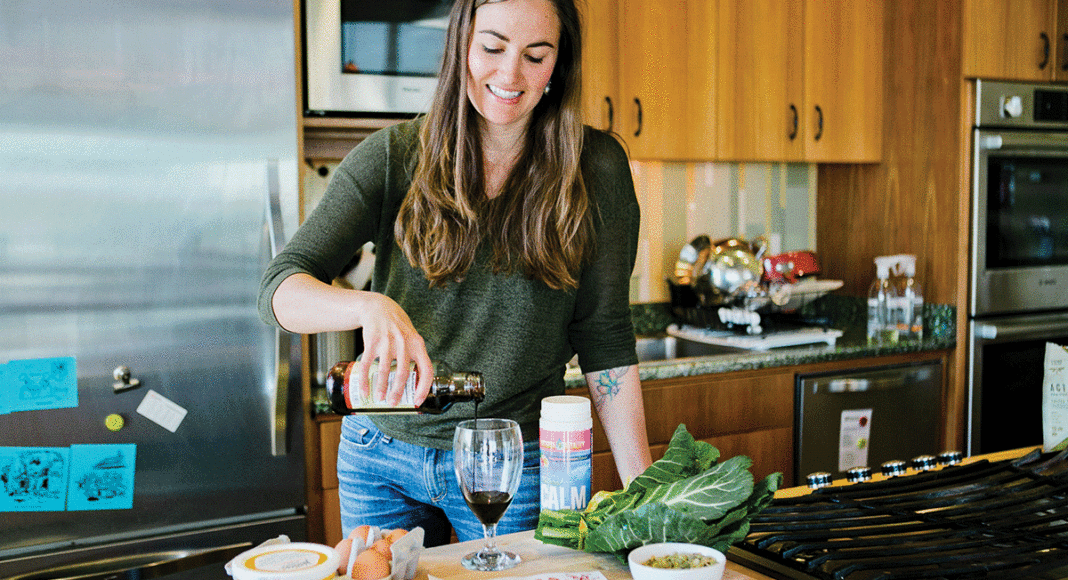Unfinished to-do lists, worrying my daughter won’t get into all of the summer camps she wants—these are the kinds of thoughts that invade my mind in the middle of the night, when I wake up and can’t fall back asleep.
The National Institutes of Health states that adults need 7.5-9 hours of sleep each night, and most people don’t get it. Getting more sleep can lead to improved moods, more creative problem-solving abilities, and the ability to better handle stress. Other benefits include stronger immune function, fewer sugar cravings and appetite control and reduced risk of developing diabetes and heart disease.
“Eight is great,” said holistic nutritionist Madia Jamgochian during a recent workshop at New Leaf, “Achieving Sound Sleep,” where I’d come to learn about foods, supplements and daily habits for more restful sleep.
“When we sleep it’s the time for our bodies to repair, so it’s very important,” Jamgochian said.
What many of us didn’t realize is that there are certain foods that can help us sleep better. For instance, dried cherries and tart cherry juice contain natural melatonin, a hormone that makes you sleepy. When people have trouble sleeping, Jamgochian said, it’s often related to hormone imbalance. Antioxidants also help with anti-aging and disease prevention, and a little goes a long way—Jamgochian recommended using one to two teaspoons of juice per eight ounces of water.
Melatonin is also sold as a supplement, but Jamgochian suggests buying this only as a last resort. “By [buying it], you’re supplying your body with it instead of helping your body to produce it,” she said.
With any potential nutrition-related problem, Jamgochian advised, it’s better to start by figuring out what’s going on with your body than to just “throw supplements at it,” which can be the tendency these days. Grass-fed beef, wild game, and turkey are natural sources of the amino acid tryptophan, which can help you sleep.
Most people are deficient in magnesium, says Jamgochian, which is a calming element that relaxes the muscles. Chocolate contains a fair amount of this, and we sampled Lulu’s smoked sea salt almond chocolate. It was delicious, and also happens to be fair-trade, low-glycemic and vegan.
Other foods high in magnesium include walnuts, almonds, pumpkin seeds and cottage cheese. Raw, sprouted seeds are the most nutritious, said Jamgochian, and she doled out samples of cultured lowfat cottage cheese (by Nancy’s) mixed with a few pumpkin seeds (Living Intentions “activated sprouted seeds”).
To relax the mind, Jamgochian suggested the GABA neurotransmitter, which tells the brain to relax. Vitanica makes a supplement called GABA Ease. Each capsule contains the herb skullcap, which can also help quiet the mind.
Waking up in the middle of the night and having trouble falling back asleep could be a sign of destabilized blood sugar, said Jamgochian. She advised eating half of a banana or a tablespoon of honey. Another tip: because hard-boiled eggs are a good source of protein and fats, if you eat them around dinnertime, they can stabilize blood sugar throughout the night. And, speaking of dinner, it’s important to eat about two to three hours before bed—and no later—to ensure restful sleep.














